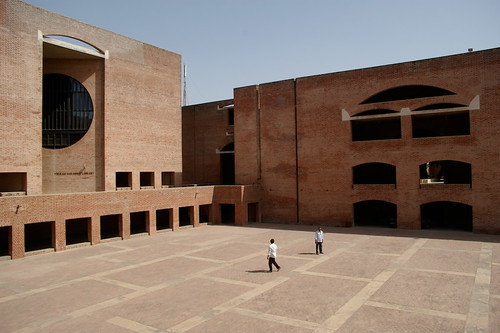The economics of sporting events
August 10, 2010 3 Comments
Gaurav argues (with glee I think) that large sporting events are financial disasters for the host countries. Much though I enjoy these tournaments, I am inclined to agree with him. Large sporting tournaments are economic black holes. The only good news is that the swell of national pride helps ensure infrastructure build-outs by a pre-defined date. Many of us continue to be optimistic about the CWG and that things will somehow happen in time (in fact some people are arguing that it would be unpatriotic of us to rake up issues related to the CWG till the games are over. Hilarious report here).
Corruption issues aside, how do the economics of these events work. The recentest global sports event was the football world cup in SA. A South African information portal estimated that the event would result in a $ 10 Bn uplift for the economy (~0.4% increase in GDP), with 373,000 tourists expected to spend $4,200 each. That would amount to ~ $ 1.6 Bn in tourism gains (16% of the total). By April this year, however, it was expected that the number of tourists was expected to be about 23% lower than originally expected (blame the recession, cost of long haul flights etc). In June, it was reported that there was going to be an overall income shortfall of about $ 3.8 Bn (38% of the planned amount).
“In the short-term, the economic benefits will be to a very minor extent, if there is a benefit at all,” said Econometrix analyst Tony Twine, adding more costs would come from lost production while workers watch soccer matches
By July 2010, there was general agreement that the direct economic benefits had been overstated. Talk instead turned to the “long-term benefits”. “infrastructure gains” and the “continued unification” for South Africa. The monetary benefits are now expected to accrue over a 3-5 year period.
The BBC has an interesting report on the subject of sports economics. The 2000 Sydney Olympics were expected to increase tourist inflows on an ongoing basis – it didn’t. The 2002 World Cup did little for Japan. The 2006 Athens Olympics were expected to cost 1.5 Bn GBP, but cost about 10 times as much (and we blame the CWG organisers!). While the upside seems to have been generally overestimated, the costs almost always seem to have been underestimated. The total cost of the South Africa World Cup were initially estimated at $ 300 Mn, but are expected to have touched $ 4 Bn.
Forbes also subscribes to the white elephant theory:
The net economic benefit from hosting the World Cup for South Africa, in terms of current and future tourism impact, is unclear. What is clear is that after the matches are over, and the fans return home, South Africa will be saddled with 10 new or newly renovated football stadiums that are much too large for domestic demand and require a large amount of spending for upkeep and maintenance. This is not surprising news. In Beijing the iconic Birds Nest Stadium, site of many vivid memories from the 2008 Summer Olympic Games, currently stands vacant almost every day of the year, unused by Chinese sports teams because it is too big, and poorly suited, for domestic sporting events. In Japan and South Korea, co-hosts of the 2002 World Cup, a number of new stadiums built for that competition currently host professional football teams that draw a fraction of their huge capacities for football matches.
While the benefits to the host nation seem debatable, it seems that FIFA certainly does well from a world cup – since it gets the television and marketing rights to the event. Early estimates suggest that FIFA would make a “surplus” of $ 1-2 Bn from the event – no recession problems for them!
And that is probably how it is meant to be. The country gets saddled with the infrastructure cost and the organizing body makes all the money. National pride cometh at a cost!

Comments